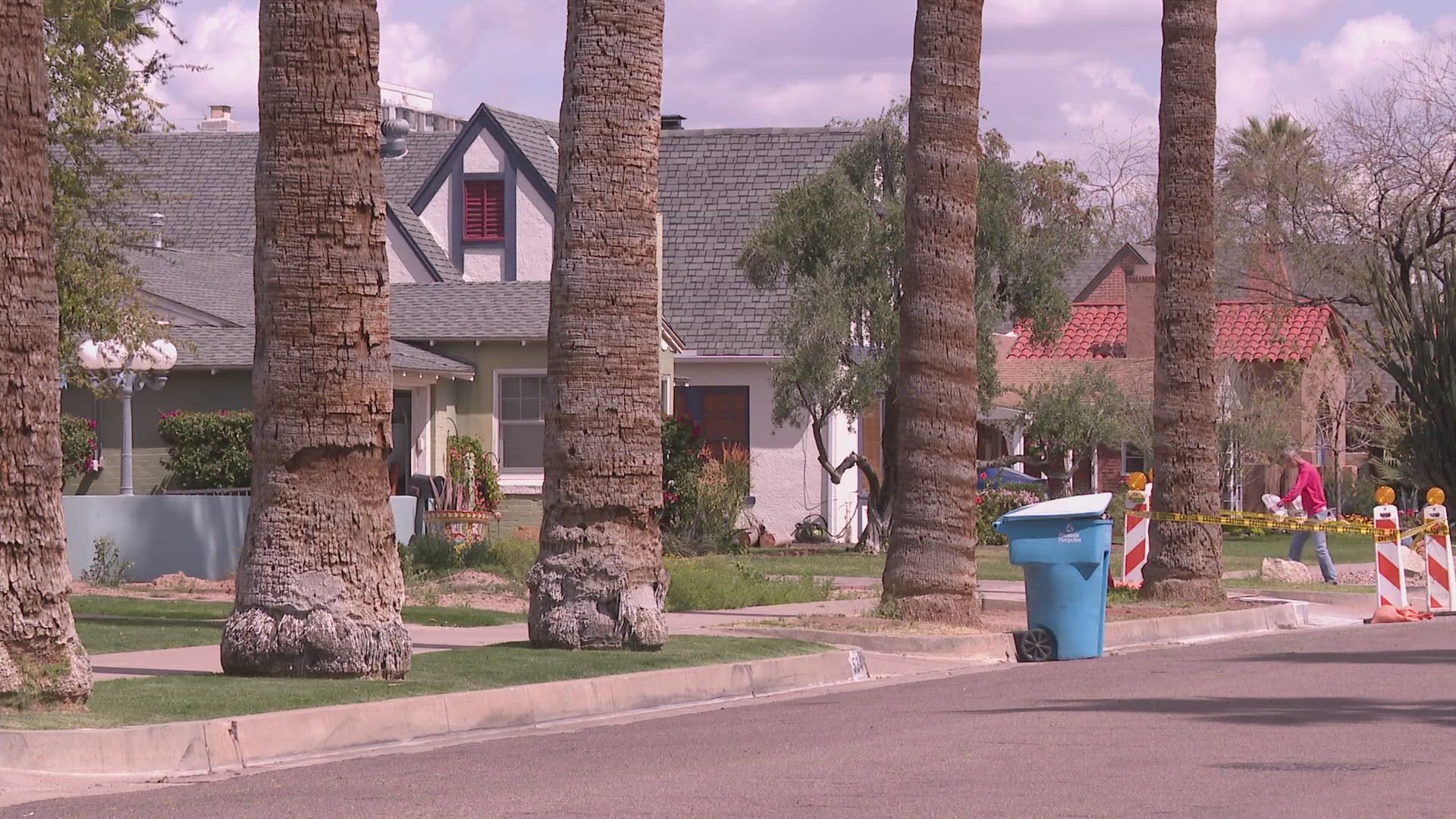PHOENIX — Arizona Gov. Katie Hobbs signed a bill Friday that will allow homeowners to remove this unenforceable relic of a racist past.
Erin Scharff discovered the deed restriction in documents she and her husband received after buying their central Phoenix home.
"They're hard words to read," Scharff, a law professor at Arizona State University, said in an interview at her dining room table.
Scharff read to me paragraph XI in a "Declaration of Restrictions":
"None of said lots nor any part thereof shall ever be sold, leased, rented to or occupied by any person who is, or whose spouse is, or who is a descendant of a Mexican, Japanese, Chinese, Mexican-Indian, American-Indian, Korean, Malay, Filipino, Negro, or Hindu, or any person of any race other than the white or Caucasian race. Nothing herein contained, however, shall be construed as a prohibition against the use of domestic servants upon set property, regardless of race and their remaining temporarily, and as an incident to their employment upon the premises where they are employed."
Scharff's succinct summary: "No one gets to live here, unless they're working for someone white."
The document is dated Feb. 11, 1950.
At the top of the "Declaration of Restrictions," a small-type statement that appears to be stamped on the page says: "Covenants and restrictions based upon race, color, religion, sex, handicap, familial status or national origin are deleted." It's not clear when the statement was added.
'These words are ugly'
"I understood that segregation, when I was growing up, was something that happened elsewhere," said Scharff, who moved with her family from Louisiana to the Valley when she was 12.
"To see it on our house, and to remember how recently this was true, and how much that affects who got to buy property here and how our neighborhoods and schools developed ... More than anything else, just to read it, wow, these words are ugly."
Legislation provides form
The bill Gov. Hobbs signed late last week won overwhelming bipartisan support in the state Legislature.
It allows property owners whose deeds contain discriminatory covenants to apply to their county recorder's office to remove them, by amending the document.
The legislation, advanced by the NAACP Arizona Conference, includes an optional form that a homeowner can use to file for an amendment to the deed.
The bill will become law 90 days after the end of the current legislative session.
Restrictions date to early 1900s
Discriminatory deed restrictions, also known as covenants, were common all over the Valley going back to the early 1900s.
The U.S. Supreme Court ruled in 1948 that racially restrictive covenants were unenforceable. The federal Fair Housing Act in 1968 made discriminatory covenants illegal.
Professor opposes law
ASU Professor Rashad Shabazz is researching a book on racist deed restrictions in the Phoenix area.
He doesn't want to see that history scrubbed.
"I oppose it," he said.
"It explains why our neighborhoods, why our communities and why our cities look like the way that they do... To keep it is to keep a reminder of how we got to where we are."
Did federal policy keep covenants alive?
Shabazz said the discriminatory covenants were kept alive by federal housing policy.
Mortgages backed by the Federal Housing Administration, which built up Phoenix neighborhoods like Scharff's in the 1950s, preferred "financially stable" areas, Shabazz said.
"The federal government used the racially restrictive covenants as the marker of what financial stability is," he said.
"Public policy can be destructive in this in this context, but it can also be really helpful by providing an avenue for changing that history... If we can provide incentives to segregate we can provide incentives to desegregate."
Up to Speed
Catch up on the latest news and stories on the 12News YouTube channel. Subscribe today.

